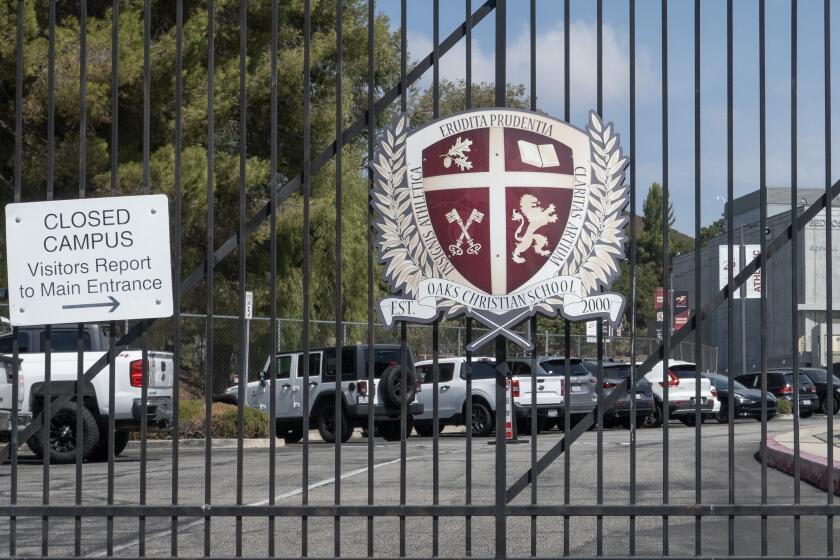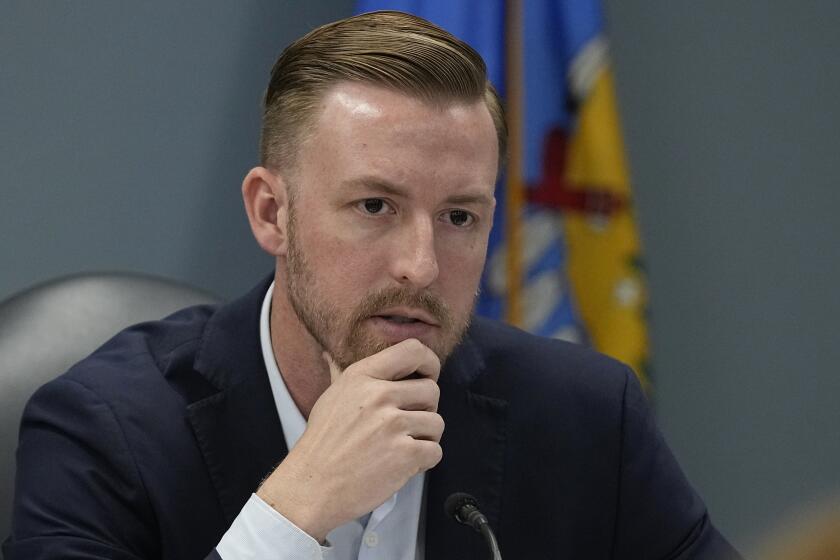Proposed Sex Education Guidelines Stress Saying No
The state Board of Education is considering new guidelines on sex education that encourage local school districts to stress sexual abstinence as “the best birth control method.”
The proposed changes also urge districts to take a non-judgmental approach to teaching about homosexuality, as well as to address other sensitive topics, including birth control and abortion.
In addition, because of rising numbers of pregnancies among preteen-agers, the report proposes that some basic instruction about human reproduction be given to children before age 9.
Supporters of the guidelines say changes are long overdue in the state’s sex education policy, which was last revised in 1972. The proposed revisions, contained in a report that the board will consider at its October meeting, were drafted by an advisory group appointed by state Supt. of Public Instruction Bill Honig.
The review has proceeded quietly thus far, but board members expect the proposals to stir spirited debate when a public hearing is held before the board takes formal action. A hearing date has not yet been set.
Honig said the most important part of the proposals before the board is the emphasis on sexual abstinence. Specifically, the guidelines state that sex education should discourage students from becoming sexually active and explain the “personal, societal and health benefits” of abstinence.
“We can and should say that premarital sexual intercourse is wrong,” Honig wrote in an introduction to the draft proposals.
All districts offer sex education, generally in the seventh and 10th grades. However, students may be excused from class discussions about human reproduction and related issues with parental permission. Moreover, any guidelines offered by the state board are not binding on school districts.
Existing state guidelines on sex education do not offer much specific guidance to districts about what topics should be covered and how. The proposals outline six topics that the panel believes ought to be addressed and offer some advice on the approach to take. The topics are sexually transmitted diseases, homosexuality, contraception, abortion, masturbation and artificial insemination.
On homosexuality, the guidelines urge districts to adopt an approach that “neither encourages nor condemns” the homosexual life style but helps students develop an understanding of it. The discussion, according to the guideline, should help students to understand that affectionate feelings for a person of the same sex or “early experiences of a homosexual type” do not necessarily mean that one is a homosexual.
Another guideline urges that students be given the opportunity to learn about the full range and effectiveness of birth control methods. But it says that abstinence should be stressed as the only “100% effective” measure.
View on Abortion
Abortion should be explained but “should not be presented as a method of birth control,” the guidelines further state. The proposed guideline emphasizes that teachers should “correctly” present both anti-abortion and pro-choice viewpoints and avoid taking a stand on the issue.
Board President David Romero said he believes the sex education guidelines are generally acceptable to the board. “There is a lot of interest on the board to at least give districts some guidelines as to what direction we’re leaning,” he said.
At least one board member wants to eliminate the guideline on teaching about homosexuality. “It is not a topic for classroom discussion,” said Angie Papadakis, a board member from San Pedro. “It is not a life style we should be promoting in the schools.”
More to Read
Sign up for Essential California
The most important California stories and recommendations in your inbox every morning.
You may occasionally receive promotional content from the Los Angeles Times.











